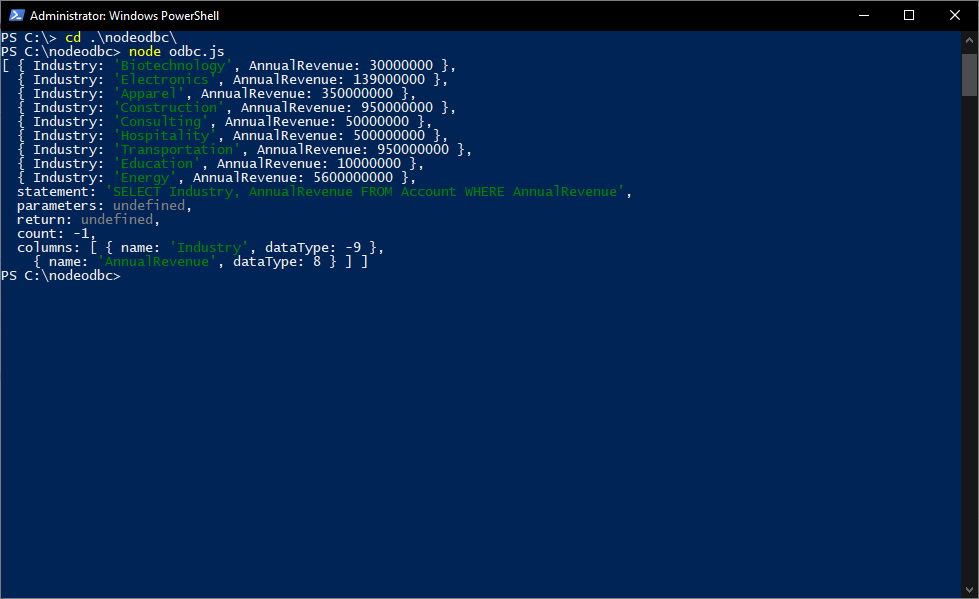Discover how a bimodal integration strategy can address the major data management challenges facing your organization today.
Get the Report →Query Workday Data through ODBC in Node.js
Use node-odbc to execute SQL queries against Workday data from Node.js.
Node.js is a JavaScript runtime environment that allows you to run JavaScript code outside of a browser. With the CData ODBC Driver for Workday, you can access live Workday data from Node.js apps and scripts. In this article, we walk through installing node-odbc and the required tools to create a simple Node.js app with access to live Workday data.
With built-in optimized data processing, the CData ODBC Driver offers unmatched performance for interacting with live Workday data in Node.js. When you issue complex SQL queries from Node.js to Workday, the driver pushes supported SQL operations, like filters and aggregations, directly to Workday and utilizes the embedded SQL engine to process unsupported operations client-side (often SQL functions and JOIN operations).
Connecting to Workday Data
If you have not already done so, provide values for the required connection properties in the data source name (DSN). You can use the built-in Microsoft ODBC Data Source Administrator to configure the DSN. This is also the last step of the driver installation. See the "Getting Started" chapter in the help documentation for a guide to using the Microsoft ODBC Data Source Administrator to create and configure a DSN.
To connect, there are three pieces of information required: Authentication, API URL, and WSDL URL.
Authentication
To authenticate, specify your User and Password. Note that you must append your Tenant to your User separated by an '@' character. For instance, if you normally log in with 'geraldg' and your Tenant is 'mycompany_mc1', then your User should be specified as 'geraldg@mycompany_mc1'.
API URL
The API URL may be specified either directly via APIURL, or it may be constructed from the Tenant, Service, and Host. The APIURL is constructed in the following format: <Host>/ccx/service/<Tenant>/<Service>.
WSDL URL
The WSDLURL may be specified in its entirety, or may be constructed from the Service and WSDLVersion connection properties. The WSDLURL is constructed in the following format: https://community.workday.com/sites/default/files/file-hosting/productionapi/<Service>/<WSDLVersion>/<Service>.wsdl
Building node-odbc
In order to connect to Workday through the CData ODBC Driver, you need to build node-odbc manually (after installing the required tools).
Installing the Required Tools
The following commands install the tools required to build node-odbc (note the -g parameter, which installs the tools globally).
npm i -g windows-build-tools npm i -g node-gyp
Building node-odbc
After installing the required tools, create a directory for the Node.js app and install odbc (which builds the binary for us to use in our Node.js script).
mkdir nodeodbc cd nodeodbc npm i -g node
Querying Workday from Node.js
With the ODBC Driver installed, a DSN Configured, and node-odbc built, we are ready to query live Workday data from a Node.js app. The sample code below connects to a specific DSN and queries the Workers table.
myscript.js
const odbc = require('odbc');
async function queryWorkday() {
const connection = await odbc.connect(`DSN=CData Workday Source`);
const data = await connection.query('SELECT Worker_Reference_WID, Legal_Name_Last_Name FROM Workers');
console.log(data);
}
queryWorkday();
Once you write the app, use node to execute the script:
node myscript.js

Download a free, 30-day trial of the CData ODBC Driver for Workday and start working with your live Workday data in Node.js. Reach out to our Support Team if you have any questions.






